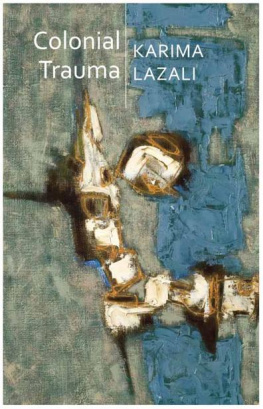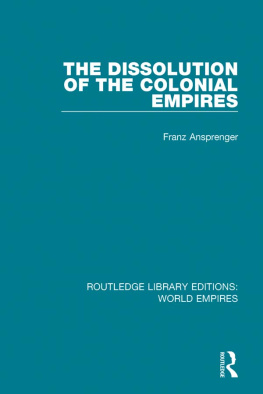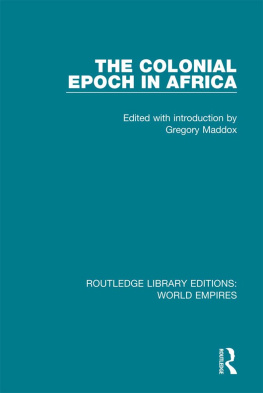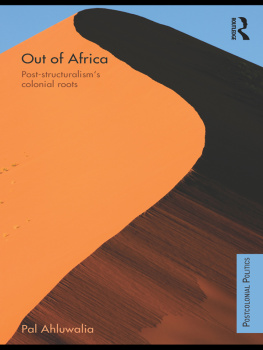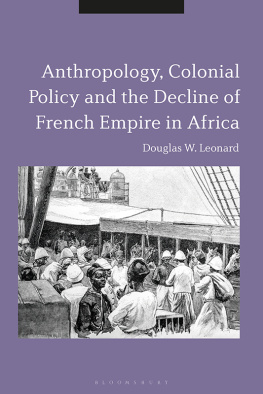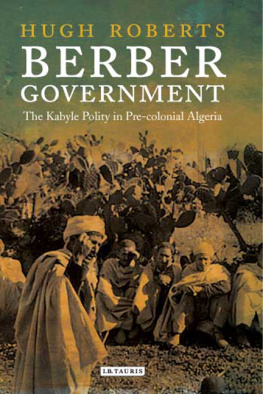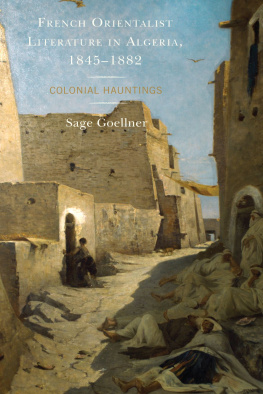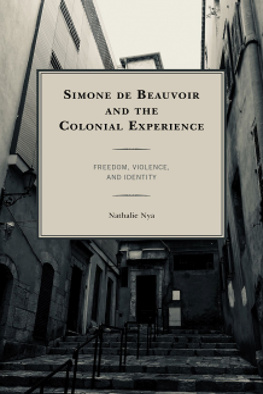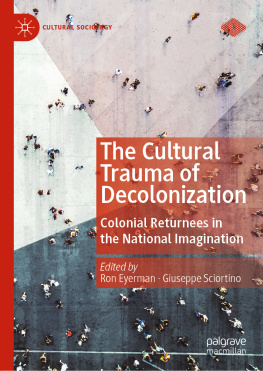Table of Contents
Guide
Pages
Series Title
Critical South
The publication of this series is supported by the International Consortium of Critical Theory Programs funded by the Andrew W. Mellon Foundation.
Series editors: Natalia Brizuela and Leticia Sabsay
- Leonor Arfuch, Memory and Autobiography
- Paula Biglieri and Luciana Cadahia, Seven Essays on Populism
- Aim Csaire, Resolutely Black
- Bolvar Echeverra, Modernity and Whiteness
- Celso Furtado, The Myth of Economic Development
- Eduardo Grner, The Haitian Revolution
- Karima Lazali, Colonial Trauma
- Mara Pia Lpez, Not One Less
- Pablo Oyarzun, Doing Justice
- Nstor Perlongher, Plebeian Prose
- Nelly Richard, Eruptions of Memory
- Silvia Rivera Cusicanqui, Chixinakax utxiwa
- Tendayi Sithole, The Black Register
Colonial Trauma
A Study of the Psychic and Political Consequences of Colonial Oppression in Algeria
Karima Lazali
Translated by Matthew B. Smith
polity
Copyright Page
Originally published in French as Le trauma colonial. Une enqute sur les effets psychiques et politiques contemporains de loppression coloniale en Algrie ditions La Dcouverte, Paris, 2018
This English edition 2021 by Polity Press
Polity Press
65 Bridge Street
Cambridge CB2 1UR, UK
Polity Press
101 Station Landing
Suite 300
Medford, MA 02155, USA
All rights reserved. Except for the quotation of short passages for the purpose of criticism and review, no part of this publication may be reproduced, stored in a retrieval system or transmitted, in any form or by any means, electronic, mechanical, photocopying, recording or otherwise, without the prior permission of the publisher.
ISBN-13: 978-1-5095-4102-7 hardback
ISBN-13: 978-1-5095-4103-4 paperback
A catalogue record for this book is available from the British Library.
Library of Congress Cataloging-in-Publication Data
Names: Lazali, Karima, author. | Smith, Matthew B., translator.
Title: Colonial trauma : a study of the psychic and political consequences of colonial oppression in Algeria / Karima Lazali ; translated by Matthew B. Smith.
Other titles: Trauma colonial. English | Study of the psychic and political consequences of colonial oppression in Algeria
Description: English edition. | Cambridge, UK ; Medford, MA : Polity, 2020. | Series: Critical South | Originally published in French as Le trauma colonial. Une enqute sur les effets psychiques et politiques contemporains de loppression coloniale en Algrie Editions La Dcouverte, Paris, 2018. | Includes bibliographical references and index. | Summary: A powerful account of the subjective dimension of colonial domination-- Provided by publisher.
Identifiers: LCCN 2020026070 (print) | LCCN 2020026071 (ebook) | ISBN 9781509541027 (hardback) | ISBN 9781509541034 (paperback) | ISBN 9781509541041 (epub) | ISBN 9781509545780 (adobe pdf)
Subjects: LCSH: Algeria--Colonization--Psychological aspects. | France--Colonies--Africa--Psychological aspects. | Algerians--Mental health. | Psychoanalysis and colonialism. | Political violence--Algeria--History. | Post-traumatic stress disorder--Algeria.
Classification: LCC DT295 .L32513 2020 (print) | LCC DT295 (ebook) | DDC 965/.03--dc23
LC record available at https://lccn.loc.gov/2020026070
LC ebook record available at https://lccn.loc.gov/2020026071
by Fakenham Prepress Solutions, Fakenham, Norfolk NR21 8NL
The publisher has used its best endeavours to ensure that the URLs for external websites referred to in this book are correct and active at the time of going to press. However, the publisher has no responsibility for the websites and can make no guarantee that a site will remain live or that the content is or will remain appropriate.
Every effort has been made to trace all copyright holders, but if any have been overlooked the publisher will be pleased to include any necessary credits in any subsequent reprint or edition.
For further information on Polity, visit our website: politybooks.com
Dedication
To my son, Badri.
Epigraph
Each generation must discover its mission, fulfill it or betray it, in relative opacity.
Frantz Fanon, The Wretched of the Earth
Foreword
Mariana Wikinski
In their ways of arresting time and encompassing space, these novels are not only irreplaceable tools of contextualization; they also create meaning out of the opacity of this colonial war and its afterlives. How can historians do their work without having read them?
Benjamin Stora, from his preface to the book Memoria(s) de Argelia. La literatura francfona-argelina y francesa al servicio de la historia
When children hear the voice of the dead, these are most often the voices of those who died without burial, without a rite.
Lionel Bailly, quoted by Franoise Davoine and Jean-Max Gaudillire in History beyond Trauma
Suddenly a phrase interrupts the rhythm of my reading and forces me to pause. Its familiarity surprises me: to kill death. Matar la muerte: this is the title of a text published in Buenos Aires in 1986 by the Argentine psychoanalyst Gilou Garca Reinoso and cited by Karima Lazali in its French translation (as Tuer la mort, 1988). I begin this foreword in what might be an excessively self-referential way, inevitably, in order to give an account of what it meant for me to feel such a surprisingly strong sense of familiarity in the very place where I was expecting to undergo a certain estrangement. The second acknowledgment is that the effects of the systematic method involving the disappearance of persons, both in Algeria and in Argentina, have been devastating; we are dealing with a biopolitical tool of domination, a tool for the control of subjectivities and bodies in systems of terror. With profound sensitivity, Lazali shows that the disappearance of persons always generates an erasure at the level of memory that cuts across generations and corrosively impedes the work of mourning.
But does this allow us to conclude that Argentinas history and Algerias are somehow homologous? Definitely not. In this, her second book, written after La parole oublie (2015), Lazali unravels the elements of Algerias specificity: the traces of trauma and the psychic transpositions of the destruction that French colonialism left in Algerian society.
French colonialism and its dramatic historical consequences events that were scandalous in their scale, their cruelty, and their persistence left an indelible mark on Algerian history. This history is also marked and this makes it radically different from the history of Argentina by the absence of investigations into and justice for the innumerable crimes committed under colonialism, during the War of Liberation and the civil wars, and even today: disappearances, genocide, the mutilation of bodies, expropriations, and the disappearance of children. These are deaths, Lazali indicates, that are deprived of bodily integrity, becoming unrecognizable. The disappearance of persons is thus not only a matter of the spectral condition of what cannot be seen; it also results from what is excessively visible but not identifiable: disfigured and mutilated bodies, deprived of any possibility of being granted an identity.
If we could think of reality itself as a laboratory functioning at the planetary scale, then comparing the subjective effects of the systematic disappearance of persons in two countries, Argentina and Algeria, might offer us definitive proof of the place of thirdness that justice creates in the ordering of social bonds. As is well known, in Argentina, the Trial of the Juntas (

